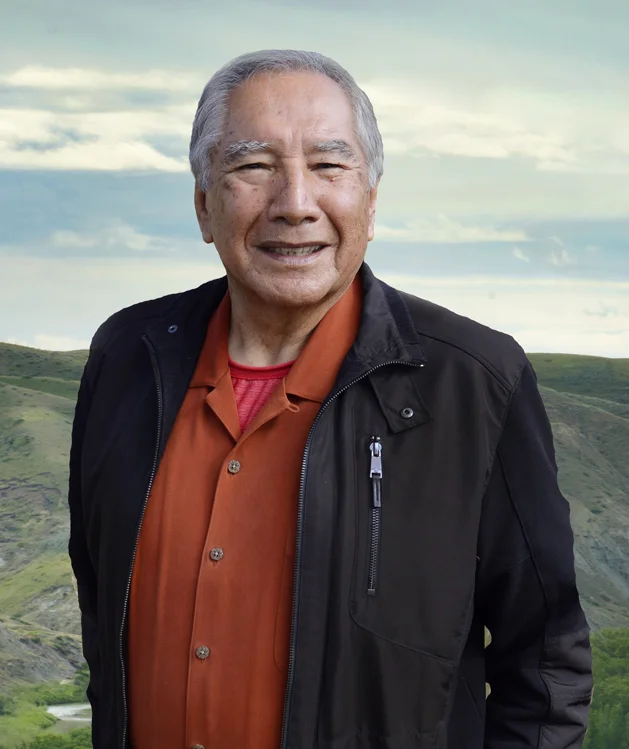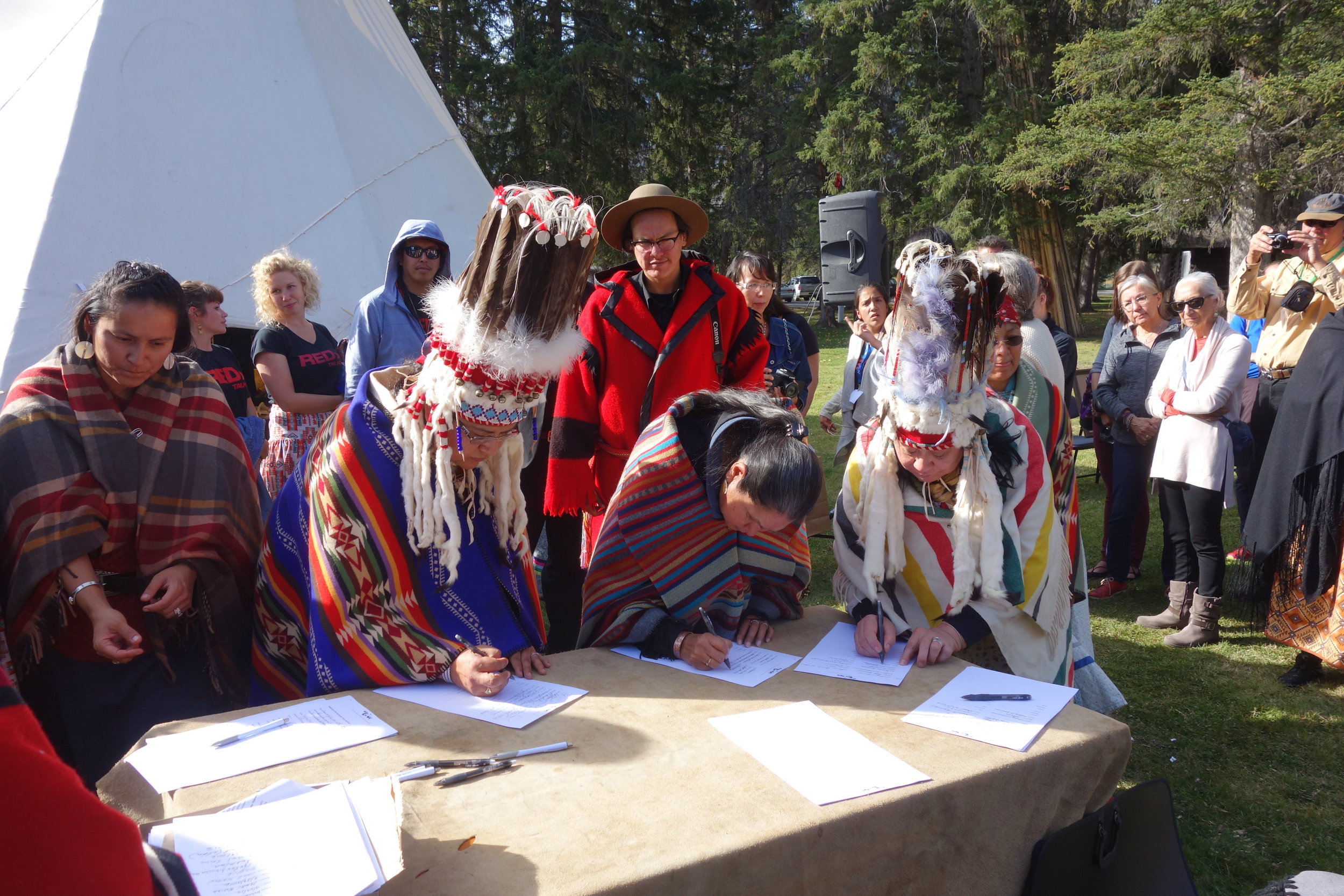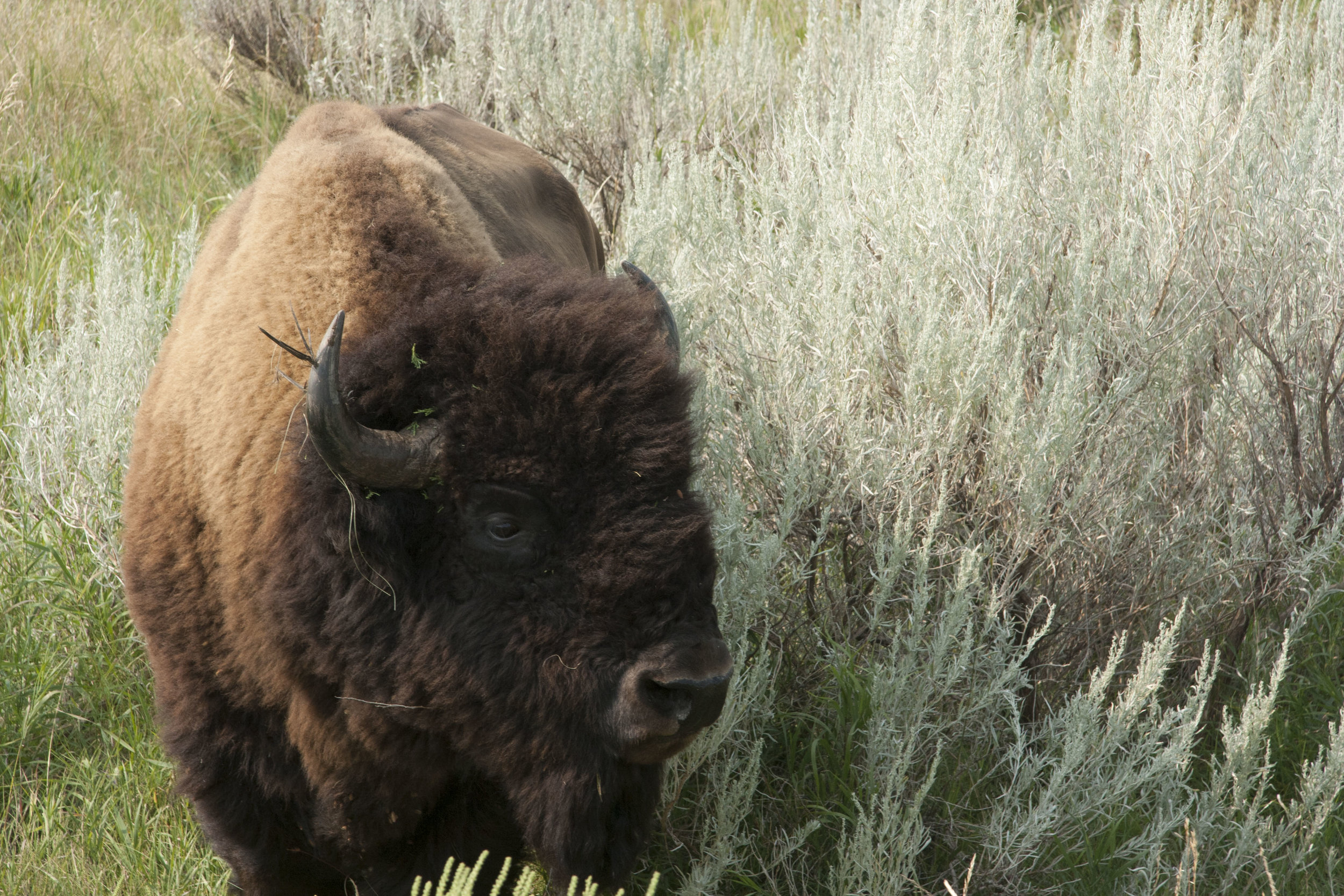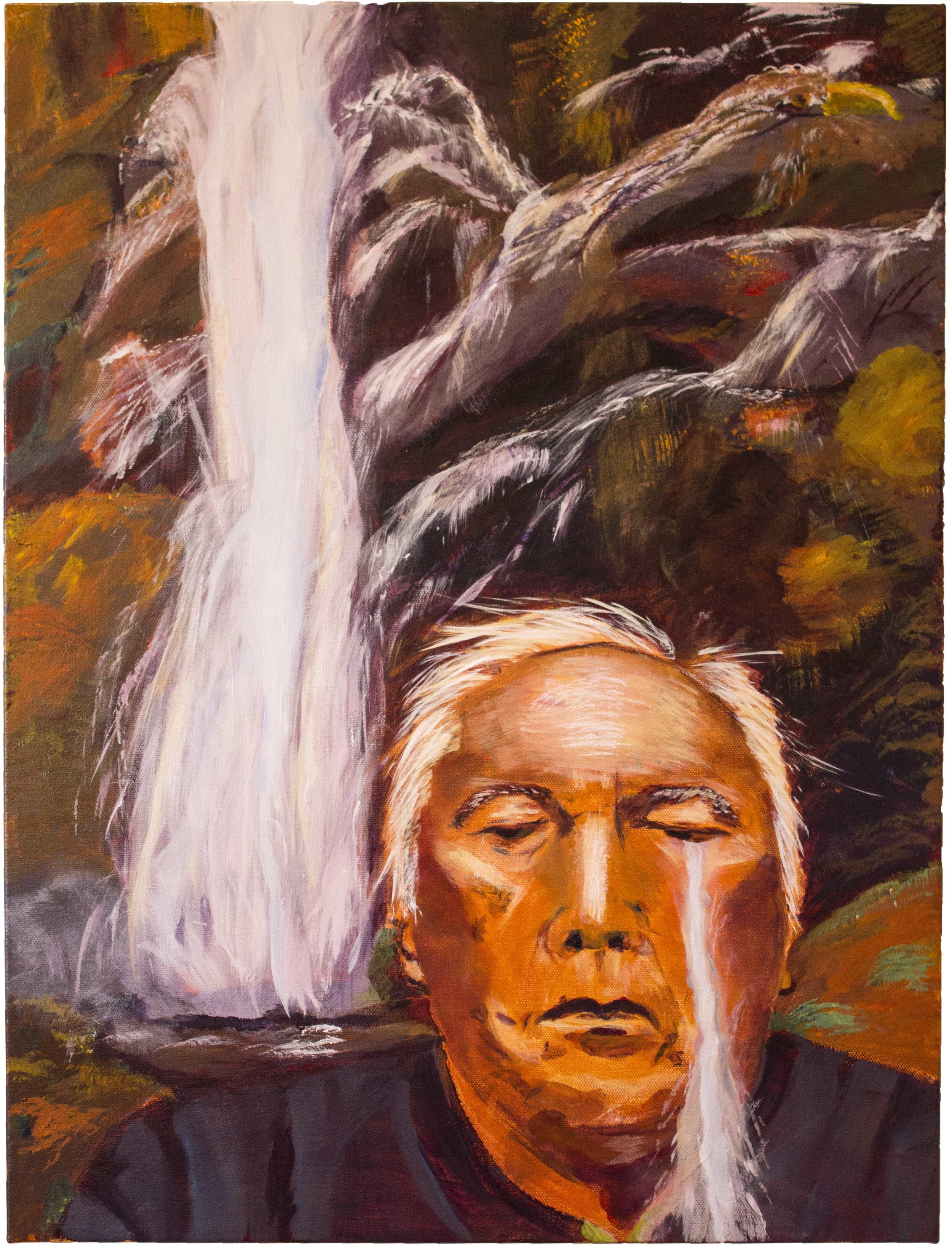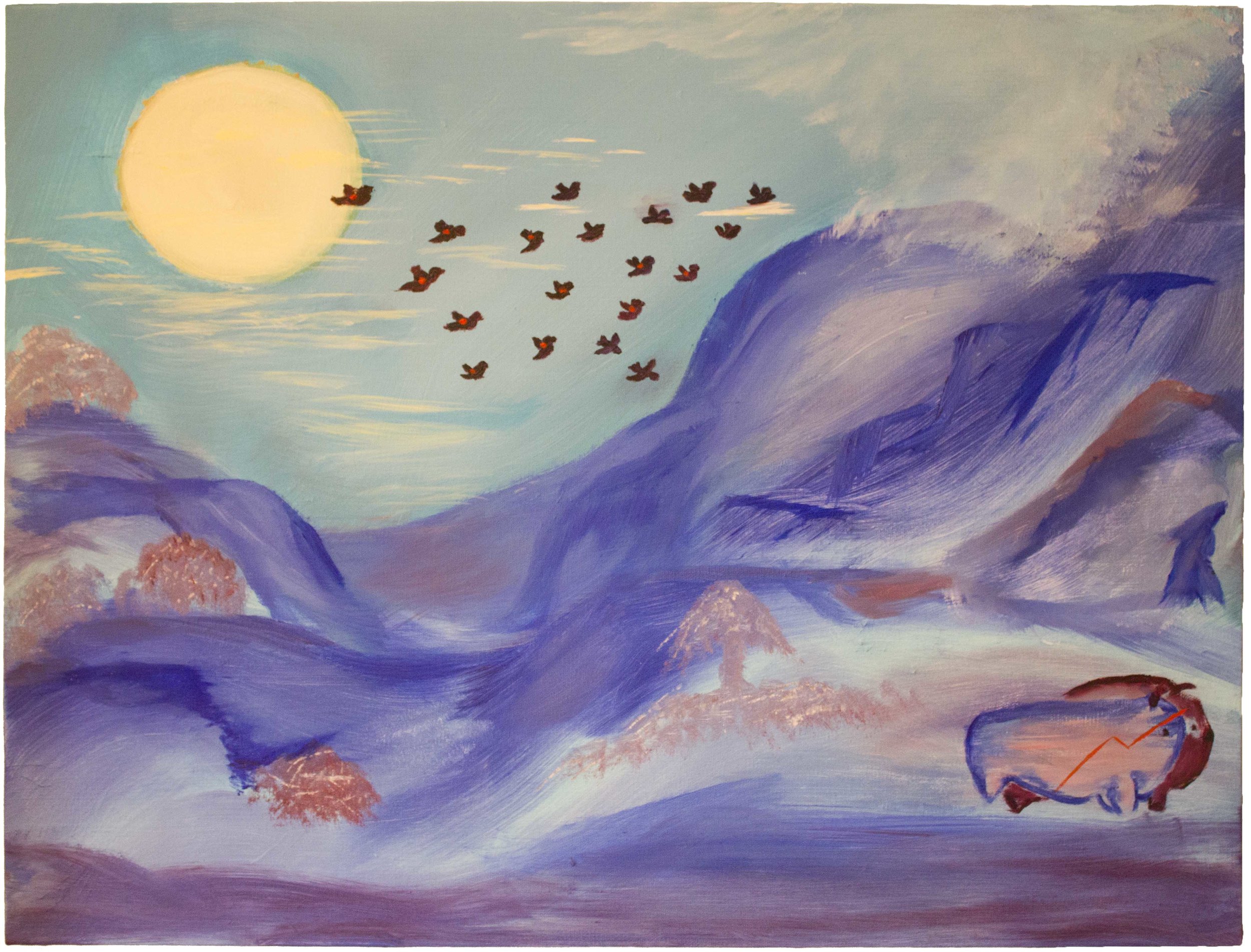Speaker: Leroy Little Bear | Air Date: June 13, 2018 | Run Time: 52mins | The Native Seed Pod: Season 1
The RE-EMERGENCE OF THE BUFFALO
On the New Moon in March, host Melissa Nelson traveled to Saskatoon, Saskatchewan, Canada to participate in the 2018 Think Indigenous Education Conference and spoke with Blackfoot Knowledge Holder Dr. Leroy Little Bear about the ground-breaking Buffalo Treaty that he has been a leader of. Leroy was a keynote speaker at the conference, where he spoke about Land as a Source of Identity and Identity as a Sacred Responsibility (see Leroy’s keynote talk here)
The Buffalo Treaty is an historic international treaty signed by dozens of sovereign First Nations dedicated to cooperation, renewal, and restoration. It was signed in 2014 and continues to lead to many landmark events and collaborations. Special guest, Tuscorora educator Rose Imai of The Native American Academy also joins this conversation as she connected Melissa and Leroy over a decade ago and has been an advocate of the Buffalo Treaty since its inception.
Tune in and listen to Elder Leroy tell the unfolding story and significance of the Buffalo Treaty.
About Leroy
Leroy Little Bear was born and raised on the Blood Indian Reserve (Kainai First Nation), approximately 70 km west of Lethbridge, Alberta. One of the first Native students to complete a program of study at the University of Lethbridge, Little Bear graduated with a Bachelor of Arts Degree in 1971. He continued his education at the University of Utah, completing a Juris Doctor Degree in 1975. Following his graduation, Little Bear returned to his alma mater as a founding member of Canada's first Native American Studies Department. He remained at the University of Lethbridge as a researcher, faculty member and department chair until his official retirement in 1997. In the spring of 2003, Little Bear was awarded the prestigious National Aboriginal Achievement Award for Education, the highest honor bestowed by Canada's First Nations community. In 2016 Little Bear was awarded the Alberta Order of Excellence.
Beyond Canada’s borders, Leroy played a central role in the first international Indigenous treaty in more than 150 years. The Buffalo: A Treaty Cooperation, Renewal and Restoration of 2014 formalized a commitment to restore the buffalo and to maintain associated indigenous cultural traditions. One of Leroy’s most significant and enduring legacies is his work with the United Nations, where he helped to establish a working group on Indigenous populations. It was this working group that originated the concept and initial draft of the United Nations Declaration on the Rights of Indigenous Peoples. This declaration has since been ratified by 144 member states of the UN, and is being implemented by the Government of Alberta.
About Rose
Rose Imai works extensively with the Indigenous ceremonial dialogue process and has devoted her adult life to exploring the transformative dimensions of communication. Rose was the Director of Education at U.C. Berkeley's Center for Particle Astrophysics from 1989 to 2000, where she led collaborative efforts to cultivate a scientific culture that supports an understanding of diversity that includes divergent worldviews. Central elements of this work, were the abilities and skills necessary for productive collaborations, distributive leadership, and communicating with diverse audiences. Following traditional Indigenous values and processes, she designed programs to explore the role values, meaning and relationship play in leadership. These programs expanded graduate training to explore fulfilling careers for scientists to include successful transitions into business, government and academic careers.
She is the co-founder and director of The Native American Academy, a circle of Native scholars and Traditional Knowledge Holders utilizing research, dialogue, writing and action projects that increase the visibility of the native paradigm, indigenous learning processes and native science. She is a respected writer and speaker, whose work has been published and presented in national and international forums including, among others; the National Academy of Sciences, Nga Pae o Te Maramatanga (Centre of Research Excellence) University of Auckland, Southeastern Consortium for Minority Education, University of Arizona, the Education & Human Values Conference, University of California Berkeley, and the Council of Graduate Schools in Washington D.C. As a visual artist she works primarily in oils, pastel chalks, video and film to create expressions of our shared consciousness and kinship with the natural world and to further her understanding of somatic learning.
Additional Links
Dr. Leroy Little Bear: “Twitter Bits from Buffalo Treaty.” REDx Talks, September 2016
Naturalizing Indigenous Knowledge by Leroy Little Bear, University of Saskatchewan, Aboriginal Education Research Centre, 2009
Little Bear plays role in bringing bison back to Banff, University of Lethbridge UNews, March 2017
Additional works by Leroy Little Bear
Co-edited Books:
Reclaiming Indigenous Voice and Vision (UBC Press, 2000)
Governments in Conflict and Indian Nations in Canada (1988)
Quest for Justice: Aboriginal Peoples and Aboriginal Rights (1985)
Pathways to Self-Determination: Canadian Indians and the Canadian State (1984)
Foreword to Native Science: Natural Laws of Interdependence, Gregory Cajete (1999)
CREDITS
Host/Writer/Co-producer: Melissa K. Nelson
Producer: Sara Moncada
Co-producer: Mateo Hinojosa
Audio Editor and Engineer: Colin Farish
Audio Assistants: Luke Reppe
Photography by Melissa K. Nelson
Original Art by Rose Imai - "Waiting" and "Following"
Songs (in order of appearance):
Eagle Dance song, sung by Eddie Madril
Kanyon’s Chumash Grandmother Song - Kanyon Sayers-Roods
Original song - Leroy Little Bear

